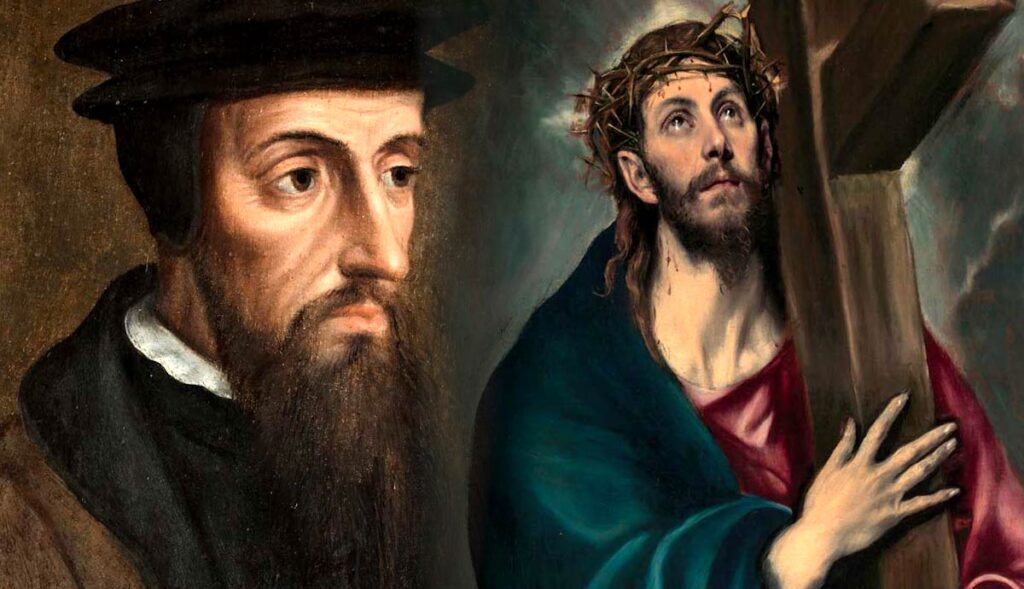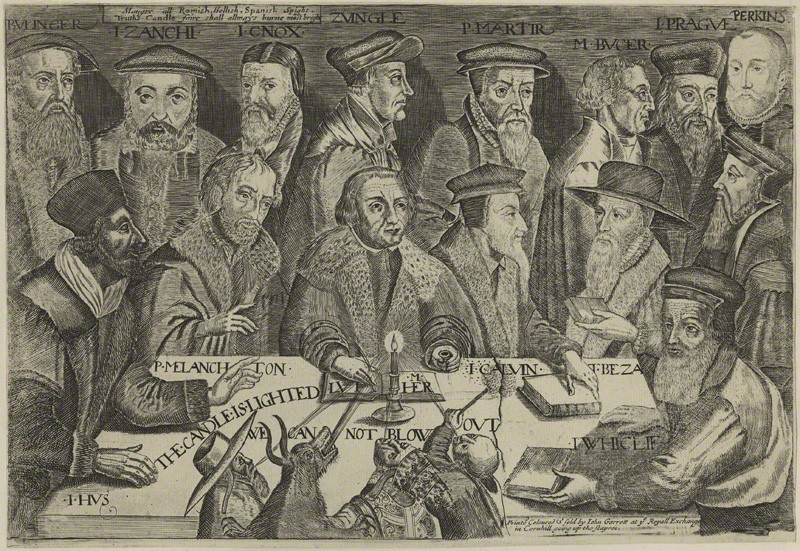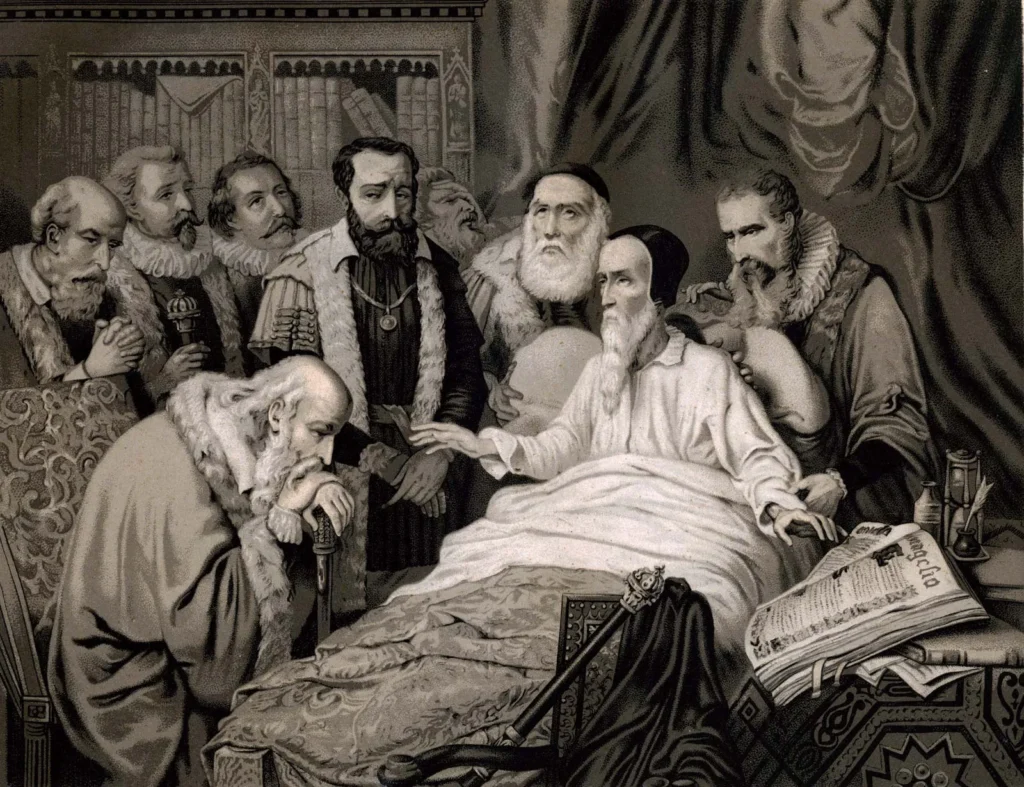
Calvinism is a major branch of Protestant theology, rooted in the teachings of John Calvin. It emphasizes concepts like predestination and the sovereignty of God. However, throughout history, some have labeled Calvinism as heretical. This article explores the arguments for and against this classification, diving into its theological implications and historical context.
Understanding Calvinism
Calvinism is a theological system that emerged during the Reformation in the 16th century, largely influenced by John Calvin, a French theologian. It is characterized by several core beliefs, including the concepts of total depravity, unconditional election, limited atonement, irresistible grace, and perseverance of the saints, often summarized by the acronym TULIP.
At its core, Calvinism emphasizes God’s sovereignty in all aspects of life, including salvation. Calvinists assert that God predestines certain individuals for salvation, while others are left to their own sinful natures. This perspective can lead to a sense of comfort for believers, as they trust in God’s ultimate control and plan for their lives.
The Historical Context of Heresy
To label a belief system as heretical, one must consider the historical context and criteria used to determine heresy. Traditionally, heresy has been defined as a belief or doctrine that deviates from established or accepted religious norms. In Christianity, this often refers to doctrines that contradict the core tenets of the faith, such as the nature of God, salvation, or the role of Jesus Christ.
During the Reformation, various factions emerged, each claiming to restore what they believed to be the true teachings of the Bible. The Catholic Church, which held considerable power, viewed many of these emerging beliefs as heretical. Calvinism, with its distinct theological positions, was no exception. As a result, Calvinism faced considerable opposition from both the Catholic Church and other Protestant reformers.
Arguments for Calvinism as Heresy
Critics of Calvinism often argue that its teachings undermine the fundamental Christian belief in free will. They contend that if God predestines some individuals to salvation while condemning others without their consent, it raises questions about God’s justice and love. This perspective suggests that Calvinism portrays God as arbitrary and cruel, casting doubt on the nature of divine grace.
Additionally, opponents argue that Calvinism’s limited atonement doctrine—that Christ died only for the elect—contradicts biblical passages that affirm God’s desire for all to be saved. They highlight verses such as John 3:16, which states, “For God so loved the world that he gave his one and only Son,” as evidence that God’s grace is available to all, not just a select few. This leads some to label Calvinism as a heresy because it seems to present a narrower view of salvation than what they believe Scripture offers.
Arguments Against the Heresy Label

Proponents of Calvinism contend that it is firmly rooted in Scripture and reflects a comprehensive understanding of God’s nature. They argue that the Bible provides ample evidence for the doctrines of predestination and election. For instance, passages like Ephesians 1:4-5 and Romans 8:29-30 are often cited to support the idea that God has chosen certain individuals for salvation.
Furthermore, advocates assert that Calvinism emphasizes the glory and sovereignty of God rather than diminishing it. They argue that God’s choice in salvation highlights His grace, as no one deserves salvation on their own merit. By this reasoning, Calvinism is seen not as a heresy but as a legitimate expression of biblical truth.
The Role of Free Will in Calvinism
A significant point of contention surrounding Calvinism is the relationship between God’s sovereignty and human free will. Critics argue that the idea of predestination negates the concept of free will, leading to fatalism. In contrast, Calvinists maintain that God’s sovereignty and human responsibility can coexist. They believe that while God predestines the elect, individuals still make genuine choices aligned with their sinful nature.
This debate often leads to discussions about the nature of God’s grace and how it operates in the lives of believers. Calvinists argue that God’s grace is irresistible, meaning that those whom God has chosen will inevitably respond to His call. This perspective can be comforting for believers, as it reinforces the idea that their salvation is secured by God’s power rather than their own efforts.
The Broader Impact of Calvinism
Calvinism has had a profound impact on Christianity, shaping not only theological discourse but also influencing social and political thought. Many Protestant denominations, particularly those in the Reformed tradition, have been significantly shaped by Calvinist principles. This influence extends to areas such as education, governance, and social justice, where Calvinist teachings have encouraged a sense of moral responsibility and community engagement.
In addition, Calvinism has contributed to the development of various theological frameworks and movements. For instance, the Puritans, who sought to purify the Church of England, were heavily influenced by Calvinist teachings. Their emphasis on piety and moral living left a lasting legacy in American culture.
Calvinism and Modern Christianity

In contemporary Christianity, Calvinism continues to evoke both support and criticism. Many churches adhere to Calvinist doctrines, emphasizing the sovereignty of God and the importance of grace in salvation. These congregations often engage in robust theological discussions, seeking to understand and apply Calvinist principles in modern contexts.
Conversely, the rise of Arminianism, which emphasizes free will and conditional election, has sparked ongoing debates within the Christian community. These discussions often reflect broader cultural conversations about autonomy, justice, and the nature of God. As such, Calvinism remains a relevant topic for theologians, pastors, and believers alike.
Conclusion
The question of whether Calvinism is truly a heresy is complex and multifaceted. While critics argue that its doctrines undermine essential Christian tenets such as free will and universal grace, proponents maintain that Calvinism is deeply rooted in Scripture and reflects God’s sovereignty. Ultimately, the classification of Calvinism as a heresy may depend on one’s theological perspective, historical context, and interpretation of biblical teachings. As Christianity continues to evolve, engaging with these differing viewpoints can foster a deeper understanding of faith and the diverse expressions of belief within the Christian community.
FAQs
What are the main beliefs of Calvinism?
Calvinism is centered around five key doctrines known as TULIP: Total Depravity, Unconditional Election, Limited Atonement, Irresistible Grace, and Perseverance of the Saints. Each of these concepts emphasizes God’s sovereignty in salvation and the nature of human sinfulness.
How does Calvinism differ from Arminianism?
Calvinism emphasizes predestination and God’s sovereign choice in salvation, while Arminianism focuses on free will and conditional election, meaning that individuals can choose to accept or reject God’s grace.
What is total depravity in Calvinism?
Total depravity is the belief that every aspect of humanity is affected by sin, making individuals unable to choose God or do good without divine intervention. This doctrine highlights the need for God’s grace for salvation.
Can someone be a Christian without adhering to Calvinism?
Absolutely. Christianity encompasses a wide range of beliefs and theological perspectives. Many Christians identify with other theological systems, including Arminianism, Catholicism, and Orthodoxy, while still being considered part of the broader Christian faith.
Why is the debate over Calvinism significant?
The debate over Calvinism is significant because it touches on fundamental questions about God’s nature, human responsibility, and the means of salvation. Engaging with these discussions can lead to deeper theological understanding and more meaningful faith practices.






